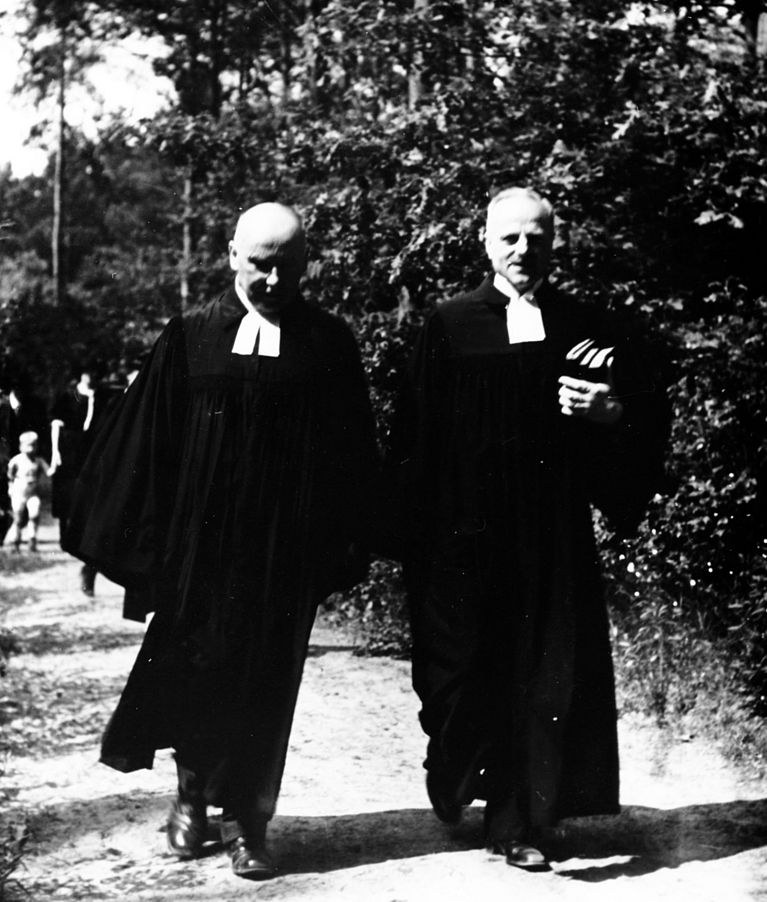More than 3,500 epileptic, disabled and mentally ill residents were threatened by the National Socialist "Euthanasia" programme in Bethel, but there were no deportations or systematic killings. Read more
Bethel - Bethel under National Socialism

-
Was there "euthanasia" in Bethel? -
What happened to the Jewish patients? Seven people of Jewish faith or origin were transferred from Bethel to the provincial sanatorium in Wunstorf as part of a special "Aktion T4" operation. A few days later, on 27 September 1940, they were taken from there to the Brandenburg/Havel killing centre and murdered. read more
-
Did Bethel doctors forcibly sterilise patients? In the institution's own hospitals, Bethel doctors forcibly sterilised over 1600 men and women. Read more
-
Did head of the institution Friedrich von Bodelschwingh the Younger put up resistance? From today's perspective, Bodelschwingh's actions are viewed ambivalently. Some call it delaying resistance. read more
-
Were there any transfers from Bethel? After the end of "Aktion T4" in August 1941, numerous people were transferred back from private sanatoriums to state institutions. Bethel was also affected by these transfers in November and December 1941. Read more
-
Were forced labourers also working in Bethel? Bethel was also guilty of employing forced labourers and prisoners of war during the Second World War. Between 1942 and 1944, around 150 to 180 forced labourers were employed at Bethel at any one time. In addition, there were around 180 to 230 jobs for prisoners of war from the nearby Stalag 326. Read more
-
Were there bomb attacks on Bethel? During the Second World War, Bethel was also hit during several air raids on the city of Bielefeld and the surrounding railway and industrial facilities. More than 60 people died and many care homes were completely or partially destroyed. Read more
-
What happened in the post-war period? The first post-war years were characterised by severe supply shortages, the large influx of refugees from the East and the continuing lack of space due to destroyed care homes in Bethel. Read more
-
How does Bethel view its past? Since the 1980s, the differentiated debate about forced sterilisations, murders of the sick and disabled and the behaviour of doctors and theologians has been a constant topic at Bethel. Read more
-
Are the victims of National Socialism remembered in Bethel? In addition to historical research, the commemoration of the victims of National Socialism also plays an important role in Bethel's culture of remembrance. Read more